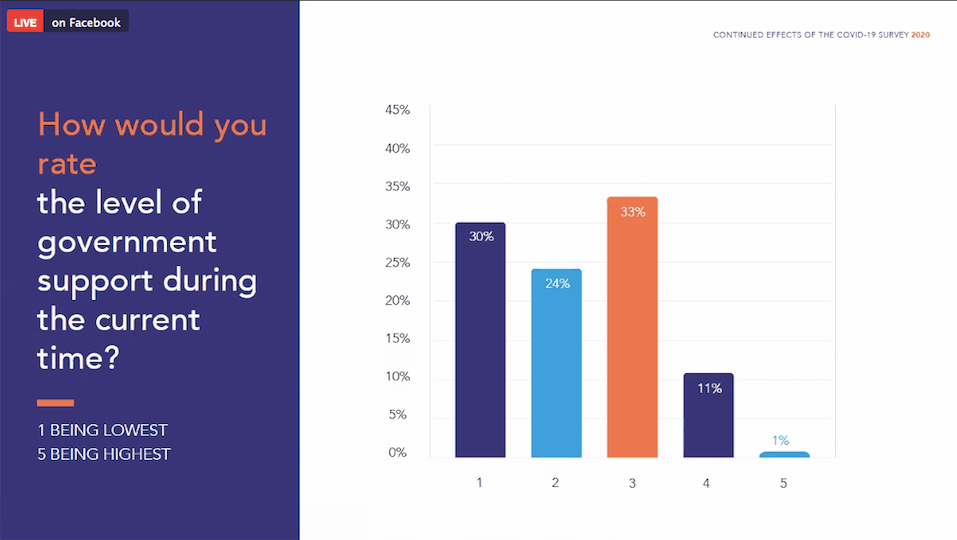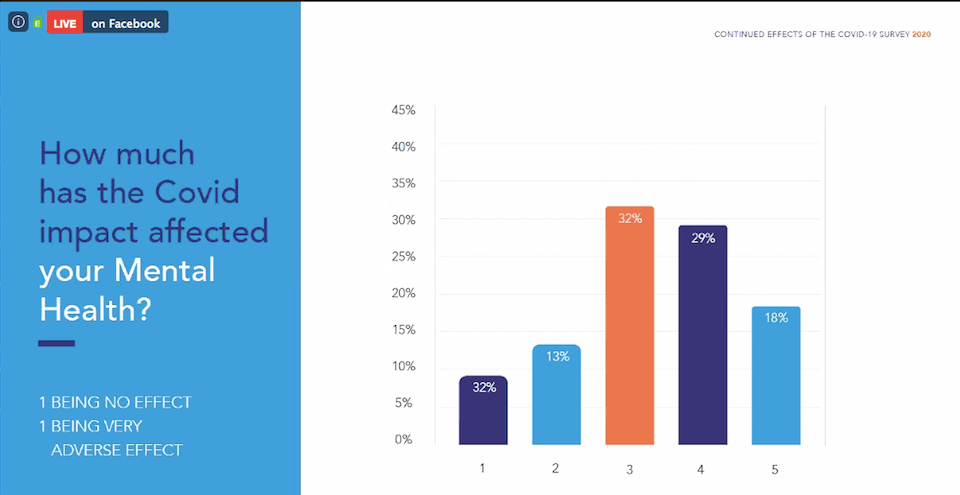The majority of respondents in a survey conducted by the Chamber of Small and Medium Enterprises (SMEs) say they are still dissatisfied with government measures to deal with COVID-19, saying they are also experiencing repercussions on their mental health.
The detailed survey by the Chamber of Small and Medium Enterprises, titled Continued effects of the COVID-19 pandemic in Malta questioned business owners between 4 and 19 April on the impact on their business. Over 350 employers filled in the survey, which was the second of its kind conducted since March.
The results were described by the Chamber’s Vice President Marcel Mizzi as an “eye-opener”. He noted that the situation might improve once the bank measures introduced on Tuesday come into play.
Over half of survey respondents gave a very low rating on the level of government support. With ratings from 1-5 (1 is low level of support and 5 is high level of support), 30% and 24% of respondents marked the two lowest ratings respectively.
One third (33%) seemed to find the measures mediocre. Only 1% of business owners selected the highest rating for government support.

Screenshot of the presentation by the Chamber of SMEs.
More than half of respondents (57%) said they are unable to sustain the wage top-up over and above the government subsidy. The main concerns in a financial struggle listed by business owners were employee wages (31%), collecting payments (24%) and paying rent (16%).
Despite the support introduced by the government, the large majority of respondents (81%) said that they would not be able to survive longer than three months, while 30% said they could only last up to only two months.
Five per cent said they could not survive longer than two more weeks, while 17% said they can only last up to one month.
Over half of respondents reported they are feeling very (32%) or somewhat (24%)uncomfortable with the banks’ support. The problems listed included bureaucracy, overdraft extensions, and moratoriums for both businesses and employees.
The study also noted issues with rent, with a quarter of business owners saying they required help with settling an agreement with landlords.
Moreover, a total of 68% of the 360 employers who responded to the study said the situation brought about by COVID-19 has had an impact some impact on their mental health.

Screenshot of the presentation given by the Chamber of SMEs.
Mizzi said one of the biggest issues was the uncertainty of the situation, making it difficult for business owners to plan ahead.
Thirty-five per cent of respondents were from the wholesale, importing and retail industry, 14% offered a miscellaneous service, while 5% were in the travel industry. Almost one third of respondents had a business which included between two to five employees, while 13% of respondents were self-employed.
Close to 40% of respondents had ceased operations at the time the survey in place, with 12% of business owners having laid off employees.












